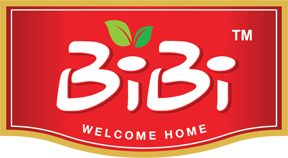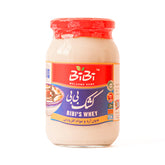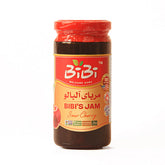The World of Middle Eastern Tea: Blends, Traditions, and Benefits
Introduction:
In the tapestry of Middle Eastern culture, tea plays a role as significant as any historical monument or natural wonder. From bustling markets in Istanbul to serene evenings in Tehran, tea is a symbol of hospitality, a daily ritual, and a bridge between old traditions and modern life. This blog post will take you on a journey through the diverse world of Middle Eastern tea, exploring its unique blends, rich traditions, and the numerous health benefits they offer. To begin your exploration into this aromatic world, visit BiBi Food’s collection of herbal teas.
The Rich History of Middle Eastern Tea:
Tea drinking in the Middle East, while not as ancient as in countries like China or India, has developed its own unique culture and significance over the centuries. Introduced relatively late, tea quickly became a staple in Middle Eastern households, with countries like Turkey and Iran now among the highest consumers of tea globally.
Diverse Tea Traditions Across the Middle East:
- Turkish Tea: Known as 'çay,' it is a strong black tea typically brewed in a unique two-pot system known as 'çaydanlık' and served in tulip-shaped glasses.
- Iranian Tea: Often a black tea variety, it's typically steeped for a long time and enjoyed strong and rich, usually served with sugar cubes or sweets on the side.
- Arabian Herbal Teas: These include a variety of herbal blends with ingredients like mint, hibiscus, and chamomile, each with its distinct taste and health benefits.
Middle Eastern Tea Blends:
The Middle Eastern palette for tea blends is as rich as its culture. Some popular blends include:
- Mint Tea: A refreshing staple in many Arabian countries.
- Saffron Tea: A luxurious blend cherished for its unique flavor and health properties.
- Spiced Tea: Blends with cardamom, cinnamon, and cloves, often enjoyed during colder months.
The Social Role of Tea in the Middle East:
In the Middle East, tea is much more than a beverage; it's a social glue. Tea houses and cafes are common gathering places for social interactions. Offering tea to guests is a sign of hospitality and respect, deeply ingrained in the region’s customs.
Health Benefits of Middle Eastern Teas:
- Antioxidant Properties: Many Middle Eastern teas, particularly green and black teas, are rich in antioxidants, which help in reducing oxidative stress in the body.
- Digestive Aid: Herbal teas like mint and chamomile are known for their soothing effects on the digestive system.
- Relaxation and Stress Relief: Herbal blends are often consumed for their calming properties, aiding in relaxation and stress relief.

Brewing the Perfect Cup of Middle Eastern Tea:
Brewing Middle Eastern tea is an art. The key lies in the tea’s steeping time and the water temperature, which vary depending on the type of tea. For herbal teas, water just off the boil is ideal to extract the flavors and beneficial compounds.
Exploring Middle Eastern Teas with BiBi Food:
At BiBi Food, we offer a curated selection of Middle Eastern teas, ranging from robust black teas to fragrant herbal blends. Our collection is a tribute to the region's rich tea heritage, providing an authentic experience of Middle Eastern tea culture. Explore our herbal tea collection to find your perfect blend.
Conclusion:
The world of Middle Eastern tea is as diverse and rich as the region itself. It's a world where tradition meets health, flavor meets culture, and every cup tells a story. Whether you are a tea enthusiast or new to the world of teas, Middle Eastern blends offer something for everyone. With BiBi Food’s selection of teas, embark on a flavorful journey that transcends borders and brings the essence of Middle Eastern hospitality to your cup.





